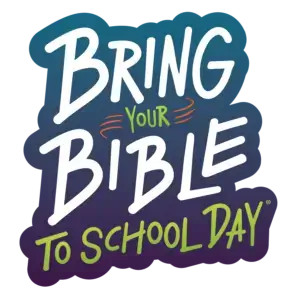Did you know the majority of students in New Zealand spend at least six hours per day in school? That’s a lot of time, and it presents a unique challenge to Christian students who spend that time in an environment that’s completely different than—or even contradicts—what they learn at home and at church.
In many instances, public schools have become places that discourage or even punish expressions of faith. Therefore, students may feel they have no other choice but to check their faith at the door. However, kids can bring their faith to school.
Parenst can help their students be bold and take ownership in living out and sharing their faith – wherever they may be. (Check out Focus on the Family’s Bring Your Bible to School Day.) With that in mind, here are three persistent myths that students may face and the reasons why they are simply not true.
MYTH #1: STUDENTS CANNOT BRING THEIR FAITH TO SCHOOL BECAUSE OF THE ‘SEPARATION OF CHURCH AND STATE.’
Why it’s false: Students are not ‘agents of the state’; they are not speaking on behalf of the “government,” or even the public school.
The student is speaking as a private individual and has a right to voluntarily express a personal, faith-based viewpoint in a respectful manner. Court rulings have made it clear that public schools cannot ban student speech simply because it happens to have a religious perspective. Consequently, the separation of church and state does not apply in this instance.
Students have every right to start conversations about their faith at school with friends, but it is important to remember that they must do so in a way that doesn’t disrupt instructional time. On the other hand, free-time periods such as lunch, recess, and other breaks are appropriate times to share
MYTH #2: STUDENTS CANNOT PRAY PUBLICLY AT SCHOOL.
Why it’s false: Student-initiated prayers are private, personal speech and protected by the Constitution.
Prayers are allowed as long as they are student-led (rather than being adult-led or school endorsed), aren’t disrupting academic instruction, and are voluntary—meaning no student feels coerced to participate. On the other hand, students have every right to pray over a meal or with friends thus bringing their faith to the school.
MYTH #3: STUDENTS CANNOT BRING THEIR BIBLES WITH THEM TO SCHOOL.
Why it’s false: Students can bring other books from home to read at school, so they can also bring their Bibles (or other religious books) to read during free time and share with their peers.
In fact, students can even use the Bible in class assignments! In other words, as long as students use the Bible in a way that is relevant to the subject the teacher has assigned and meets the requirements of the assignment, they have that freedom.
WHAT ELSE DO I NEED TO KNOW ABOUT FAITH AND SCHOOL?
While students have plenty of rights that provide them the opportunity to share their faith at school, there are some important things they should know NOT to do while expressing their faith.
First, students cannot disrupt instruction time. They cannot abuse their religious freedoms in a way that prevents the school from accomplishing its core mission of providing academic instruction. In other words, students can’t use their freedoms as an excuse to be late or interrupt a teacher’s lesson plan. Generally speaking, it’s best for students going to school to share their faith with classmates during breaks, lunch, recess, or before or after school.
Students also cannot harass other students. For example, they do not have the right to force other students to listen to them. A good rule of thumb for students to remember is to have conversations not confrontations with their peers. We’re reminded of this principle in 1 Peter 3:15: “…always being prepared to make a defense to anyone who asks you for a reason for the hope that is in you; yet do it with gentleness and respect.”
Finally, students shouldn’t ignore school policies. While students don’t need permission to have faith-based conversations with other classmates, it is a good idea to check for applicable school policies or notify school officials when planning to distribute materials or advertise for a Christian club or event. Schools have the ability to enforce reasonable regulations, but they can’t enforce them in an inconsistent or biased way.
WHAT CAN PARENTS DO?
Now that some of the myths that students might face have been busted, you may be wondering if there is something that would help embolden them to express these freedoms at school. And there is!
Bring Your Bible to School Day is an annual, nationwide, and student-led event happening this year on Thursday, October 3. This event is designed to empower Christian students of all ages to take the lead in speaking God’s grace and truth into the culture around them by taking one simple step—bringing their Bible to school and talking about it with friends.
To sum up, how can you equip your kids’ hearts and minds to take this step of faith in school? Consider taking the following steps to prepare them in three separate (but important) ways:
Spiritually:
Be sure to pray before the event. The Parent/Pastor guide (available at BringYourBible.org) also includes Bible verses to discuss with them, as well as Bible studies and activities to do with your children to encourage their hearts before the event.
Mentally:
There are articles in the teen and elementary versions of the event guides that will help strengthen a child’s trust in the Bible’s guidance and accuracy. Take some time to discuss with your child why the Bible is reliable – “5 Evidences the Bible is True” is a good reference to get the conversation started.
Legally:
Make time to review with your child what their rights are. The free, downloadable participation guides explain this in age-appropriate ways. Also, review the “Your Rights” section – there is a 2019 legal memo from the Alliance Defending Freedom explaining students’ rights to participate in Bring Your Bible to School Day. Print this memo out and provide it to school officials before the event!
Bring Your Bible to School Day has grown so much over the past few years – more than half a million students participated last year – but there is more room to grow! As a parent, you have a tremendous influence in the lives of your kids. Therefore, help them take ownership of their faith by encouraging them to participate in Bring Your Bible to School Day on October 3!
But that’s not all! This is more than a one-day event – this year, Bring Your Bible to School Day is expanding into a year-round movement to empower students and their families to boldly live out their faith at school and in the culture. That is to say, it will equip students and their families with monthly challenges – specific, tangible actions they can take to live out their faith at school and in the community throughout the year. In the weeks following the event, watch for these challenges that will provide fun and engaging ways to put biblical faith into practice and to share with an online community.
Finally, stay tuned! Look for more updates on BringYourBible.org, as well as Instagram and Facebook.
Bret Eckelberry serves as the Project Manager for Education Issues at Focus on the Family and helps facilitate Bring Your Bible to School Day.


















 0800 200 362
0800 200 362 support@family.org.nz
support@family.org.nz Rangiora, 7400, New Zealand
Rangiora, 7400, New Zealand